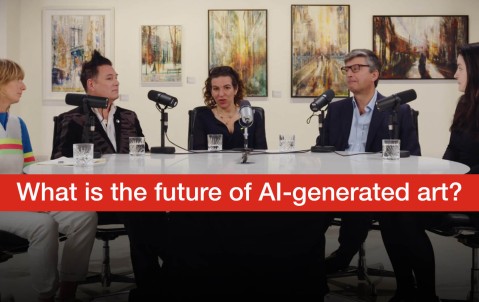New research into the home of the future highlights transformative role of technology and growing importance of sustainability and wellbeing
- Dual and tri-hub homes on the rise – more generations living under one roof
- Move towards ‘accidental minimalism’ as even more of what we own becomes virtual
- Renaissance of the pre-fab – next-generation pre-fabricated homes will be well-engineered, factory built homes that improve affordability and help relieve housing shortages
- Growth of energy positive communities that will generate both power and profit
- Evolution of the bathroom as it becomes the nerve centre for health monitoring and wellbeing
London, UK (3 June 2015) – New research released today by specialist insurer Hiscox shines a light on how people will live in the future and shows that, although homes will look much the same as how they look now, their functionality and capabilities will change dramatically.
The Hiscox Home of the Future Report 2015 examines what the next 10 years in the home will look and feel like for people in the UK, France and Germany. It shows that technology, sustainability and wellbeing will become even more important in the home, with everyday items working in more efficient and effective ways.
Steve Langan, CEO, Hiscox Insurance Company, commented: “When most of us think of the home of the future, we think of something far removed from what we have currently, but we’ve found that is actually not the case. The next wave of transformation in the home will be subtle but hugely impactful – kettles that harvest energy from boiling water, washing machines that use their spin cycle to generate electricity, surface treatments that keep room temperatures stable, and wallpaper that removes smells from a room. The home has evolved significantly over a number of decades to the point where we are already able to live cleaner, leaner, better informed lives, and our research indicates this is only set to continue.”
Changing family dynamics
Dual or tri-hub homes will become increasingly common – this is, homes with multiple living areas and adaptable space for different generations. It’s what we call the ‘one house, two homes’ concept as different generations create their own home within a home. This trend is driven by the fact that children are remaining in the home for longer and ageing societies mean more people will have their parents come to live with them in old age. With 12% of British respondents aged over 18 saying they expect their parents to live with them in the future, that equates to 6.2 million people*.
Technology
Technology will give us even greater control of the home remotely as domestic devices are increasingly networked together. This goes beyond simply controlling lighting and heating, or monitoring security while away from the home. In the future, there will be sensors that monitor humidity, noise and smoke variations and respond accordingly, devices that track climatic conditions in your garden and advise you on what to plant, smart washing machines that read the digital identity of an item and wash it accordingly, and home monitoring sensors that raise the alarm if normal daily activity has not taken place such as boiling the kettle or turning on the TV – particularly useful for elderly people living alone.
As even more of what we own becomes virtual (books, music, films, photographs), we will become ‘accidental minimalists’ – freeing up space previously allocated for bookshelves and placing even greater importance on the items we choose to display in the home. Less cluttered houses, with less space devoted to storage, will facilitate even more flexible use.
Technology will also give us next-generation pre-fabricated homes – or what is now known as ‘modular architecture’. Far removed from the traditional notions of post-war pre-fabricated homes in the UK, these will be well engineered, factory built, more energy efficient homes that help relieve housing shortages – finding a receptive audience among young people struggling to get onto the property ladder
Sustainability
The most innovative architects will build homes that generate more power than they consume and we will see the growth of energy positive communities where hundreds of houses, each with their own solar panels, are able to feed electricity into the grid – generating both power and profit.
This focus on sustainability will also see previously wasted energy harvested – for example, kettles that recover energy from boiling water, or washing machines that use their spin-cycle vibrations to create electricity. Such innovations will reduce energy use in the home.
Wellbeing
The bathroom will evolve dramatically in a similar way to how the kitchen has evolved; it will grow in importance and become the nerve centre for health monitoring and wellbeing. For example, windows and glass cabinets will become interactive screens on which to monitor vital statistics.
The best new houses will cut through the ‘electro-smog’ and be built to shield residents from electro-magnetic radiation by installing the connectivity that we demand within walls. We’ll also see less harmful materials used in property construction. There will be an increasing focus on natural and recycled materials within the home and a move away from traditional and potentially harmful materials such as formaldehyde in joinery glues, which could be replaced with soy-based glues, and Volatile Organic Compounds in paint. These small changes will make a big difference and as a consequence, houses will be healthier places.
Steve added: “We all want to live in a home that is not only beautiful but also secure, efficient and effective, and these findings show that improvements in each of these key areas are coming. We’ve been insuring higher value homes for over 75 years and have over 90,000 home insurance customers across Europe, so knowing about changes in this area help inform how we prepare for emerging risks and protect homes over the next 75 years and beyond.”
Learn more about Hiscox home insurance
-ENDS-
* The population of Great Britain aged 18 or over equates to 50.8 million people. In our research, we found that 12.2% of this group agreed with the statement: I expect my parents to live with me in the future. This represents 6.2 million people based on official population figures.
For more information please contact:
| Lucy Hensher | +44 (0) 20 7448 6619 | [email protected] |
NOTES TO EDITORS
About The Hiscox Home of the Future Report 2015
The Hiscox Home of the Future Report 2015 is a first of its kind report, created in collaboration with specialist global insight business, Future Foundation. The report explores what the home might look and feel like over the next 10 years across the UK, France and Germany. Its findings are based on a combination of qualitative and quantitative research, including responses from 1,000 individuals from each country and interviews with industry experts such as materials consultants and home-builders.
About Hiscox
Hiscox, the international specialist insurer, is headquartered in Bermuda and listed on the London Stock Exchange (LSE:HSX). There are three main underwriting divisions in the Group - Hiscox Retail (which includes Hiscox UK and Europe, Hiscox Guernsey, Hiscox USA and subsidiary brand, DirectAsia), Hiscox London Market and Hiscox Re. Through its retail businesses in the UK, Europe and the US Hiscox offers a range of specialist insurance for professionals and business customers, as well as homeowners. Hiscox underwrites internationally traded, bigger ticket business and reinsurance through Hiscox London Market and Hiscox Re. For further information, visit www.hiscoxgroup.com
About Future Foundation
Future Foundation – a leading independent global insight business – works with corporations around the world to help them transform strategy, innovation and marketing. Future Foundation consultants partner closely with clients to help them not only withstand the changing world around them, but to identify and apply the key consumer trends that will provide actionable insights for the business landscape of the future. Future Foundation prides itself on highlighting the real truth behind societal shifts, empowering individuals and companies to move forward with confidence. The company has offices in London, New York and Stockholm. For further information, visit www.futurefoundation.net.
All press releases


